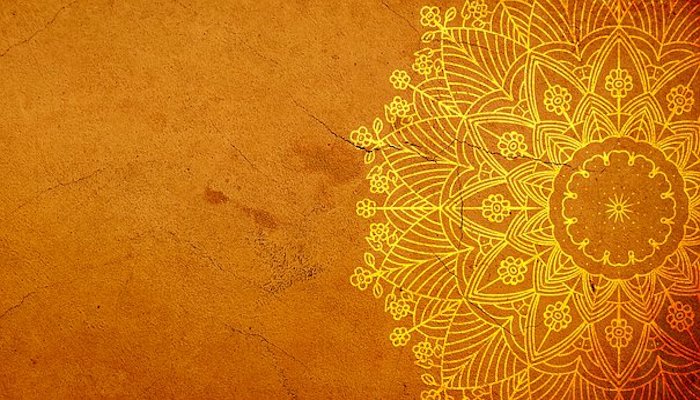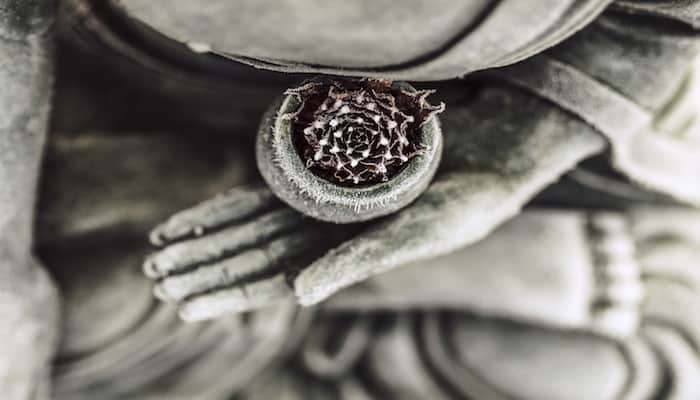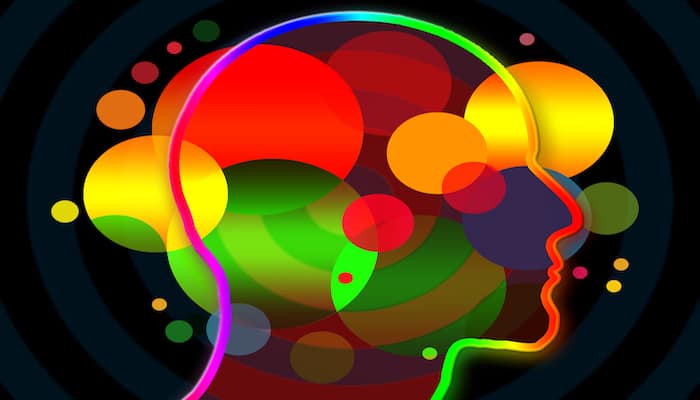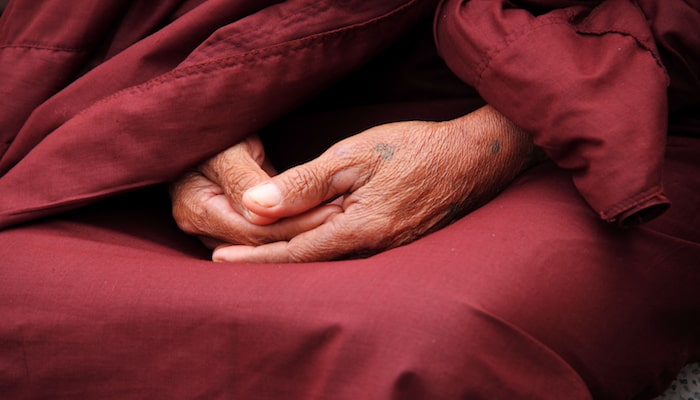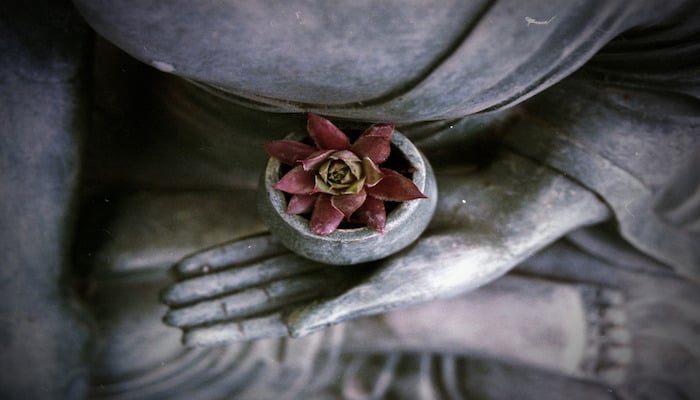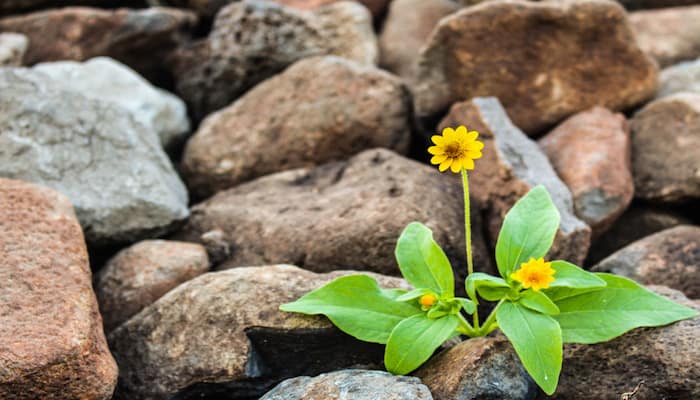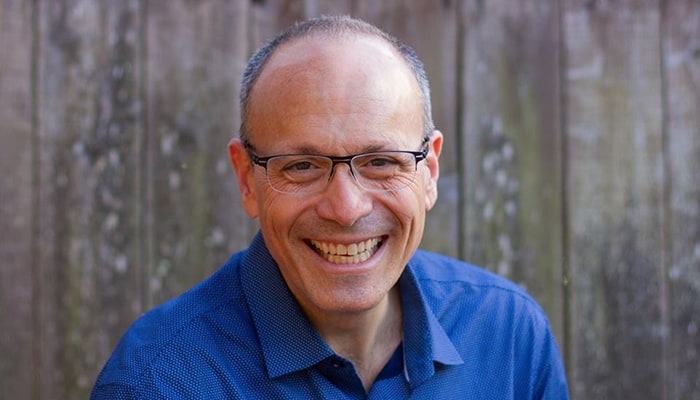Category: Empowered Living
Blog: Overcoming Denial: Part 2
By Denise Colby
If we have been in deep denial about some aspect of our experience, the revelation of truth will at first be a painful one. Truth will make its entrance in ways that will seem quite disturbing—intrusive thoughts, nightmares, innocuous interactions producing strong emotions, or a general feeling that one is “not OK.” It is at this juncture that we come to a choice: we can stay in denial and find external reasons to justify our internal experience, numbing and modulating using whatever coping mechanisms we have, or we can claim our internal experience as something uniquely personal and get very curious about it.
There are many roads out of denial, but at some point we will have to choose to validate what our body and reactivity is saying over the story we’ve been telling ourselves. This breaking down of an old story — the acknowledgement that we’ve been telling ourselves a false story our whole lives — provides the crack where the light of truth can finally break through to our awareness.
Blog: Overcoming Denial: Part 1
By Denise Colby
Of all of the defense tactics and cycles of negativity that we get wrapped up in during our human experience, denial is perhaps the hardest to overcome. It’s insidious and manipulative, yet we cling to it fiercely.
We see denial everywhere we look. It is as rampant on the public and cultural scale as it is in our relationships. The external stage, as always, provides a mirror for our own inner relationship to truth. To live in truth, we must examine further the sources, motivations for, and consequences of denial on the inner stage, for it is only through the resolution of our own rejection of truth that we can begin to clearly see and resolve the external falsehoods that abound.
Article: Mindfulness In Leadership
Work is a lot of things. It’s fun and rewarding, challenging and exciting. It’s also hard a lot of the time and for most of us it can be a place of real struggle.
In order to thrive, today’s leaders need to develop many different kinds of tools. Trainings around things like presentation skills and strategic planning are relatively accessible. The real differentiator though is less about these kinds of visible skills and more about something that might be described as invisible: Mindfulness.
Blog: Aging Gracefully In A Youth Culture
By Laura Chandler
In a recent article in The Atlantic titled, “Your Professional Decline is Coming (Much) Sooner Than You Think” (July 2019), the author, Arthur Brooks, looks for a silver lining as he explores the idea of his own unavoidable decline and the loss of relevance he will suffer in old age. His investigation takes him to different psychological principles, Darwin’s theory of evolution, happiness studies, and ultimately to an Indian guru, Acharya. His question to this master was this: “Many people of achievement suffer as they age, because they lose their abilities, gained over many years of hard work. Is this suffering inescapable, like a cosmic joke on the proud? Or is there a loophole somewhere—a way around the suffering?”
Blog: Personal Responsibility: An Interview with Isa Gucciardi, Ph.D.
Question: How would you define personal responsibility?
Isa: Personal responsibility is a process of becoming more self-aware, understanding your motivations, your intentions, and the effect your actions and thoughts have on you and those around you. It involves a willingness to contemplate the consequences of your emotional responses, and the ability to recognize when those expressions are harmful and when they are beneficial.
Blog: Boundaries: A Case Study
By Isa Gucciardi, Ph.D.
When people come into my office with relationship problems, they do not always realize they’re dealing with boundary issues. Many people think if they’re being treated badly in relationship, they must be doing something wrong. This is generally due to a lack of understanding about boundaries, and this lack of understanding usually stems from a place of unworthiness. The person being mistreated believes they’re flawed in some way, and makes compromises to stay in relationships where they are suffering. Boundary issues almost always arise when a person doesn’t feel lovable, and consequently, they’re willing to do almost anything to get another person’s approval. Because they don’t love themselves, they are dependent on others to be sources of love and validation.
Buddhist Meditation in Depth Hypnosis
By Isa Gucciardi, Ph.D.
Depth Hypnosis is a therapeutic process that blends elements of Shamanism, Buddhism, transpersonal psychology, hypnotherapy, and energy medicine. Buddhism is one of the main engines of Depth Hypnosis, and meditation is one of many tools we use to help clients alter their state of consciousness. Meditation enables clients to shift their focus from their “thinking minds” to their inner experience.
Blog: Ask Isa: Manifesting Vs. Magical Thinking
Question: I believe in manifesting, but sometimes I worry that my thinking is “magical.” What’s the difference between manifesting what you want in life and magical thinking?
Isa: Manifestation is the process of moving into the unknown. To manifest properly, you have to be clear about what you want to manifest and why. Having a clear intention focuses your awareness, creating more possibilities for manifesting what you want.
Article: Art & Spirit: The Process of Creating
In our bustling society, with advertisements bombarding us from every angle and art being sold to us by astute marketers who study our inclinations right down to what we search online, it’s hard to imagine a time in our consciousness when art was not a specialized field done by specialized people. Sure, you may dabble, but when did you start thinking you weren’t good at something, or worse, you were not “good enough?” Perhaps the more pressing question is when did artistry become something that you admired in other people such that it caused you to doubt your own abilities? If you can remember that time, then you are remembering a very important moment in your history when you turned away from yourself and inadvertently obscured your relationship to that larger essence of interconnectivity, cutting yourself off from something precious and regenerative.
Blog: Ask Isa: Finding Meaning in Divorce
By Isa Gucciardi, Ph.D.
Question: I just got divorced and it’s brought up a lot of shame for me. I feel like I failed in my marriage. How do I deal with the shame?
Isa: Whenever you have shame, you have blame. It sounds like there might be an internal conflict going on, where one part of you is blaming you and one part of you is receiving the messages of blame and feeling ashamed. I would recommend sitting down and exploring the part of yourself that is making you feel ashamed.
One way to do this is to think about all of the expectations you had going into the marriage. Consider the expectations you had of yourself, the expectations you had of the other person, and the expectations you had of the marriage itself and what you hoped it was going to do for you. For instance, if you got married because you wanted to feel validated by your family, ask yourself why you didn’t feel validated before you were married. You have to honestly examine your motivations for entering the marriage to discover what is behind these expectations. As you become clear about what your expectations were, you’re going to see how you respond when your expectations are not met.
Article: Mothering and Matriarchy
By Isa Gucciardi, Ph.D.
Matriarchal societies are organized by maternal priorities, meaning all members are cared for in a nurturing and supportive way. To create communities rooted in these values, both men and women must change their fundamental relationship to mothering and motherhood.This shift must go beyond the rhetoric of early feminists who decried the second-class position mothering placed on women, and who sought to liberate women from the prison of the culturally-defined institution of motherhood. Instead, we must recognize the power of motherhood independent of any cultural value systems where mothering becomes a pawn of dominance and ownership. To do this, we must understand how our inability to nurture ourselves and others has weakened us, both on a societal and an individual level.
Blog: Encountering the Great Mother in the Birth Environment
By Isa Gucciardi, Ph.D.
To understand the essence of the Great Mother, it is helpful to look to the earth. From the moment we are born until the moment we die, we are held in the earth’s embrace, and it has many valuable lessons to offer us about motherhood. The earth is abundant, nurturing, unyielding, and adapting. The Great Mother is the embodiment of these qualities, offering us tremendous teachings about the mutuality of experience in the natural world.
You can find the power of the Great Mother expressed in the many mother goddesses appearing in different cultures around the world — Pachamama in the Andes, Tara in the Himalayas, Quan Yin in China, Isis in ancient Egypt, and Hera, Thera and Athena in Greece and Rome. There is a widespread understanding among different cultures about the importance and necessity of being in alignment with the power of the Great Mother, not only to bring forth life but also to nurture life in a way that is beneficial for everyone.
Despite a lack of understanding about mothering and matriarchal priorities in the west, the power of the Great Mother is accessible to women in the modern time. By connecting with this power, women can sustain themselves no matter what is happening in their birth process. Women can use their connection with this power to receive guidance and to understand the deeper meaning of their experience.
Blog: Ask Isa: Unexpected Pregnancy
By Isa Gucciardi, Ph.D.
Question: I’m pregnant and I’m having a hard time connecting to my child. I wasn’t planning on getting pregnant and I’m not sure how I feel about it. What can I do to feel more connected to my child?
Isa: First of all, there isn’t anything wrong with you if you don’t feel connected to your child right away. This is a huge moment in your life, and you need to give yourself all the time and space you need for this pregnancy to fully register for you.
If you can’t connect with your child immediately, it’s likely because you need to take time to explore the ways you’re going to change as you become a mother. In order to connect with your child, you first have to connect with yourself. If you don’t put your own emotional and physical needs first, it will be more difficult to connect. Focusing on yourself in this way is not selfish, but will actually be beneficial for your child.
When preparing for motherhood, it is essential to reflect on what being a mother means to you and to consider how having a child is going to affect your everyday life. I recommend looking at your own definition of “mother” and examining the way you were mothered. If you have been well-mothered, reflect on what values you might emulate as a mother for your child. If you were not mothered well, there may be places within you that need healing.
Blog: Mindful Leadership: An Interview with Hal Adler
Hal Adler is a certified Depth Hypnosis Practitioner and Executive Coach. In this interview, Hal talks about his upcoming Mindful Leadership workshop at the Sacred Stream Center, and why mindfulness is an essential practice for anyone in a leadership position.
On the Air: A Meeting of the Ways with Diane Solomon and Isa Gucciardi: The Cool Heroism of the Sacred Feminine in Political Discourse
Diane Solomon, host of A Meeting of the Ways on KKUP, and Isa Gucciardi discuss the upcoming Science and Non-Duality conference and the pre-conference workshop Isa is presenting with Robert Thurman, The Cool Heroism of the Sacred Feminine in Political Discourse. They also explore questions such as, “What is the nature of non-duality?” And “What does the ‘Cool Heroism of the Sacred Feminine’ point to?”

